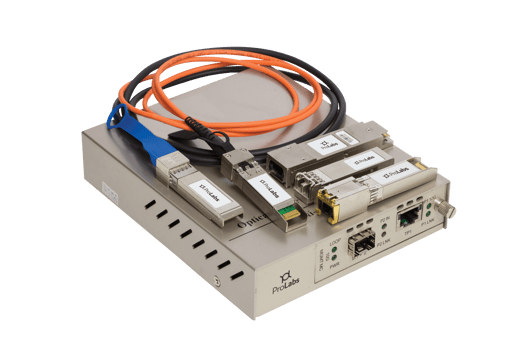 Transceivers, also called small form-factor pluggable (SFP) or "mini-GBICs," are used in every data center, enterprise and service provider network. These devices convert electrical to optical signals for fiber-based transmission transmit. We'll briefly outline some things you may want to consider when choosing compatible transceiver products and suppliers to help you make the best decision to meet your capital and infrastructure needs.
Transceivers, also called small form-factor pluggable (SFP) or "mini-GBICs," are used in every data center, enterprise and service provider network. These devices convert electrical to optical signals for fiber-based transmission transmit. We'll briefly outline some things you may want to consider when choosing compatible transceiver products and suppliers to help you make the best decision to meet your capital and infrastructure needs.
Why Compatibles?
Demand for faster network speeds, more capacity and greater connectivity is putting increased pressure on budgets. To get more bandwidth for lower capital expenses, networking professionals are increasingly turning to the use of compatibles - rather than original equipment manufacturer (OEM) - networking products. The cost savings are undeniable, with potential savings of up to 70% over comparable OEM products. But cost, while compelling, is just one part of the equation.
Quality - Although third-party transceivers have gained greater acceptance, some network operators still believe going with an OEM-branded transceiver is the "safe" choice. However, ProLabs transceivers are often at the same or better quality than the ones offered by OEMs. The truth is that most transceivers, both OEM and those sold by quality suppliers, are often produced in the same manufacturing facilities.
Warranties - The most common question asked about compatibles is the impact on the switch warranty. OEMs legally cannot invalidate a warranty or withhold support based on the use of a compatible product, as documented in the Magnuss-Moss act. Further, transceiver-specific warranties are an area where OEMs often fall short. Unlike OEMs, which typically have one-year warranties, many compatible suppliers offer lifetime warranties.
Coding - Third-party compatible transceivers are designed to comply with industry standard MSA (Multi-Source Agreements) and are programmed and tested to be fully compatible with OEM network equipment. To protect their business model, OEMs design their transceivers and other products to work only with their own products and systems. Compatibles, on the other hand, are designed to work with all manufacturers in the same manner as OEM supplied transceivers.
Availability - Compatible providers often carry a large stock of products, including fixed and tunable wavelength WDM, that are held at strategic locations to allow for overnight delivery in most cases. Compatibles are a viable source for all transceiver needs.
Reputable Channels - An Internet search of compatibles can result in an overwhelming number of results that may provide more questions than answers. You, more than likely, don't have the time and the patience to perform the vetting to ensure you are dealing with a reputable and experienced compatibles supplier. The key question as here is: does the supplier sell through established, reputable distribution channels? If so, the distribution channel has already done the vetting for you, saving you the time and expense.
Service - The ability to connect you with the right product for your needs sets the good suppliers apart from the others. Accu-Tech offers experienced salespeople at 35 branches across the country, logistics and material sourcing advantages and financing and credit options.
Click here to contact your local Accu-Tech representative.
Contributed to by Raymond Hagen, ProLabs Americas Product Manager.


.png?width=58&height=58&name=X_logo_2023_(white).png)
